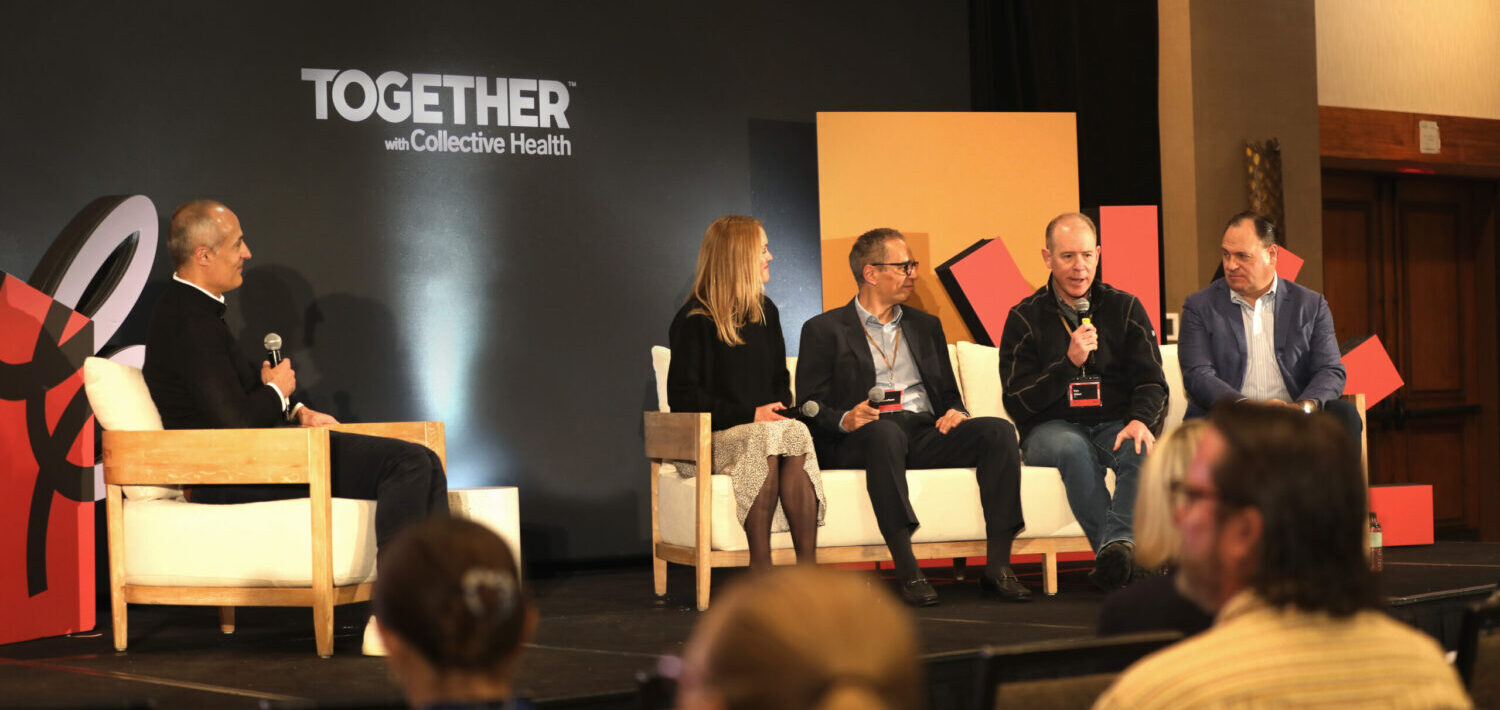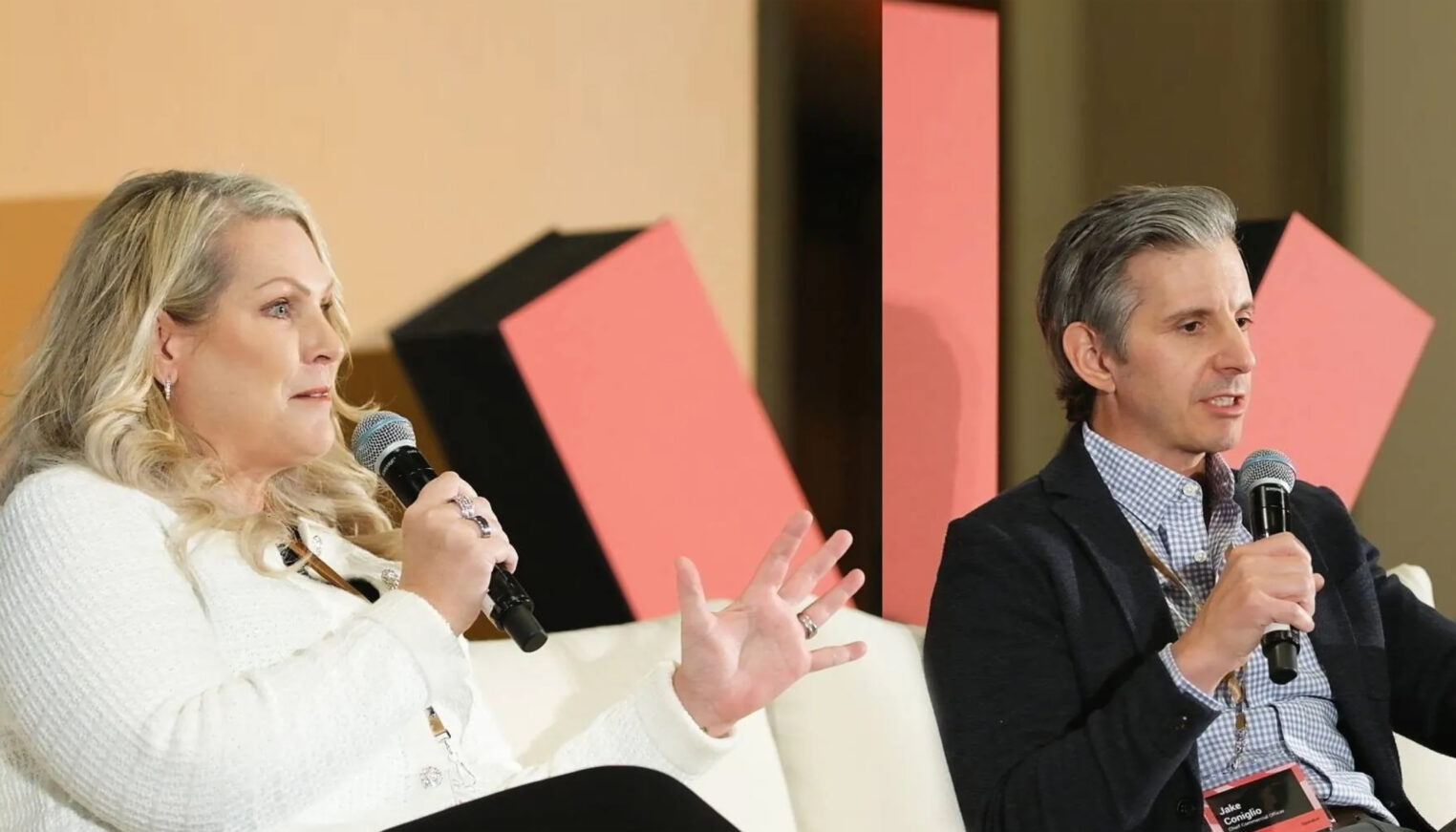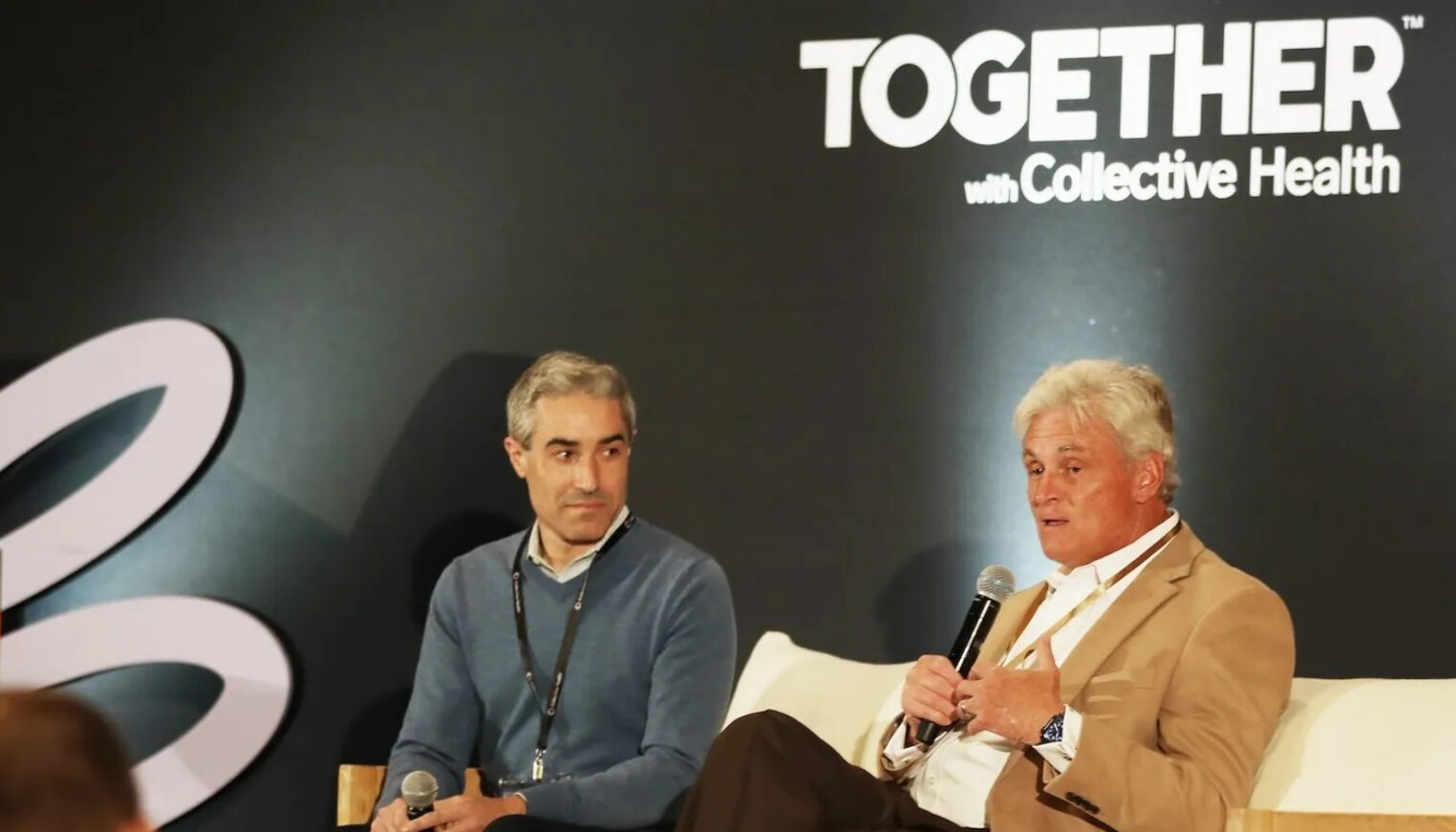At our Together 2025 customer conference in Scottsdale, we had an engaging and thought-provoking discussion on AI in healthcare to kick off the event. Leading the session, Collective Health’s CEO, Ali Diab, underscored the conference’s purpose: collaboration. “We don’t believe healthcare is an individual sport. We believe it’s a team sport,” he emphasized. The need for open discussions, challenging ideas, and active participation was highlighted as essential in addressing the complex and often convoluted U.S. healthcare system.
The key takeaways for benefits leaders:
- Employees and consumers are already interacting with AI—organizations should keep pace and proactively integrate AI.
- AI presents immense opportunities for scalable preventative health interventions, though there are challenges with specialized data and risks.
- Generative AI is revolutionizing productivity, opening up new areas to focus on.
- In benefits, the goal is to preserve human agency while making healthcare and benefits systems more efficient and personalized.
- Securing data and privacy is paramount; organizations need to ask essential questions about data security and governance.
- Consumer behavior suggests AI is already replacing some doctor roles, even if only in information searches.
The Voices in the Room
Panelists:

Dr. Megan Jones Bell
Clinical Director of Consumer and Mental at Google

Dr. Dan McCoy
Founder & CEO RocketTools.io and former President of BCBS of Texas

Yassir Abousselham
Chief Information Security Officer at Calendly

Ken Ehlert
CEO at Lore Health
"We don't believe healthcare is an individual sport. We believe it's a team sport,"
Collective Health’s CEO, Ali Diab
Exploring AI’s Role in Healthcare
The panel brought together distinguished experts, including Dr. Megan Jones Bell from Google, Yassir Abousselham from Calendly, Ken Ehlert from Lore Health, and Dr. Dan McCoy, former president of Blue Cross Blue Shield Texas and CEO of RocketTools.io. Each shared their perspectives on AI, beginning with a fundamental question: "When you hear AI, what’s the first thing that comes to mind?"
- Dr. Megan Jones Bell: "Transformative. AI is a set of tools that helps us understand, predict, read, and translate, fundamentally changing how we operate."
- Yassir Abousselham: "Magic. It’s astonishing how AI can sometimes seem to know more than we do. It’s essentially the representation of human intelligence in a programmatic way."
- Ken Ehlert: "Agency. AI, like fire or language, is a tool that enhances human capability."
- Dr. Dan McCoy: "Fire. Just like fire, AI can warm our homes and cook our food, but it can also burn us if we’re not careful."

Opportunities and Pitfalls for Benefits Leaders
Dr. McCoy addressed the real opportunities AI presents for benefits leaders:
- Automation and Efficiency: AI is adept at automating tasks, reducing manual effort, and enhancing decision-making.
- Enhanced Human Interaction: AI has the potential to transform how healthcare professionals engage with patients and employees, using ambient listening and predictive analytics to personalize care.
- Data Utilization: AI can synthesize massive amounts of data, providing actionable insights that can lead to better health outcomes.
However, with these opportunities come challenges:
- Keeping Up with AI’s Evolution: The rapid pace of AI development makes staying informed a constant challenge.
- Data Governance Risks: Organizations must establish governance strategies early to avoid data misuse.
Challenger vs. Incumbent: Can Startups Compete?
Ken Ehlert, who transitioned from UnitedHealth to leading Lore Health, provided insights into how smaller, more agile companies can compete with industry giants. His key takeaways:
- Embrace New Tools Quickly: Unlike large incumbents, startups can integrate new technologies more natively into their business models.
- Operate with a Flatter Structure: Reducing layers of management allows for faster decision-making and innovation.
- Challenge the Status Quo: Established players struggle to pivot due to legacy systems, whereas challengers can be more nimble in delivering AI-driven solutions.

Why Take a Chance on a Challenger?
One of the biggest questions for benefits leaders is whether to take a risk on emerging companies. The panel emphasized that while newer companies may lack the deep data pools of incumbents, they bring:
- Innovative Approaches: Fresh perspectives can lead to groundbreaking solutions.
- Agility and Responsiveness: The ability to pivot quickly in response to industry needs.
- A Focus on Personalization: Many challengers are prioritizing tailored solutions over one-size-fits-all models.
Final Takeaway: Engage, Learn, and Adapt
AI is here to stay, and as Dr. McCoy pointed out, it’s crucial for benefits leaders to be engaged in the conversation. Whether working with established players or emerging challengers, the key is to stay informed, ask the right questions, and develop a governance strategy to harness AI’s potential while mitigating its risks.
With AI transforming the healthcare landscape, the Together conference reinforced one core idea: collaboration is the key to bending the cost curve while improving health outcomes. The future is not about choosing between AI and human expertise—it’s about integrating them effectively to build a better system for all.



